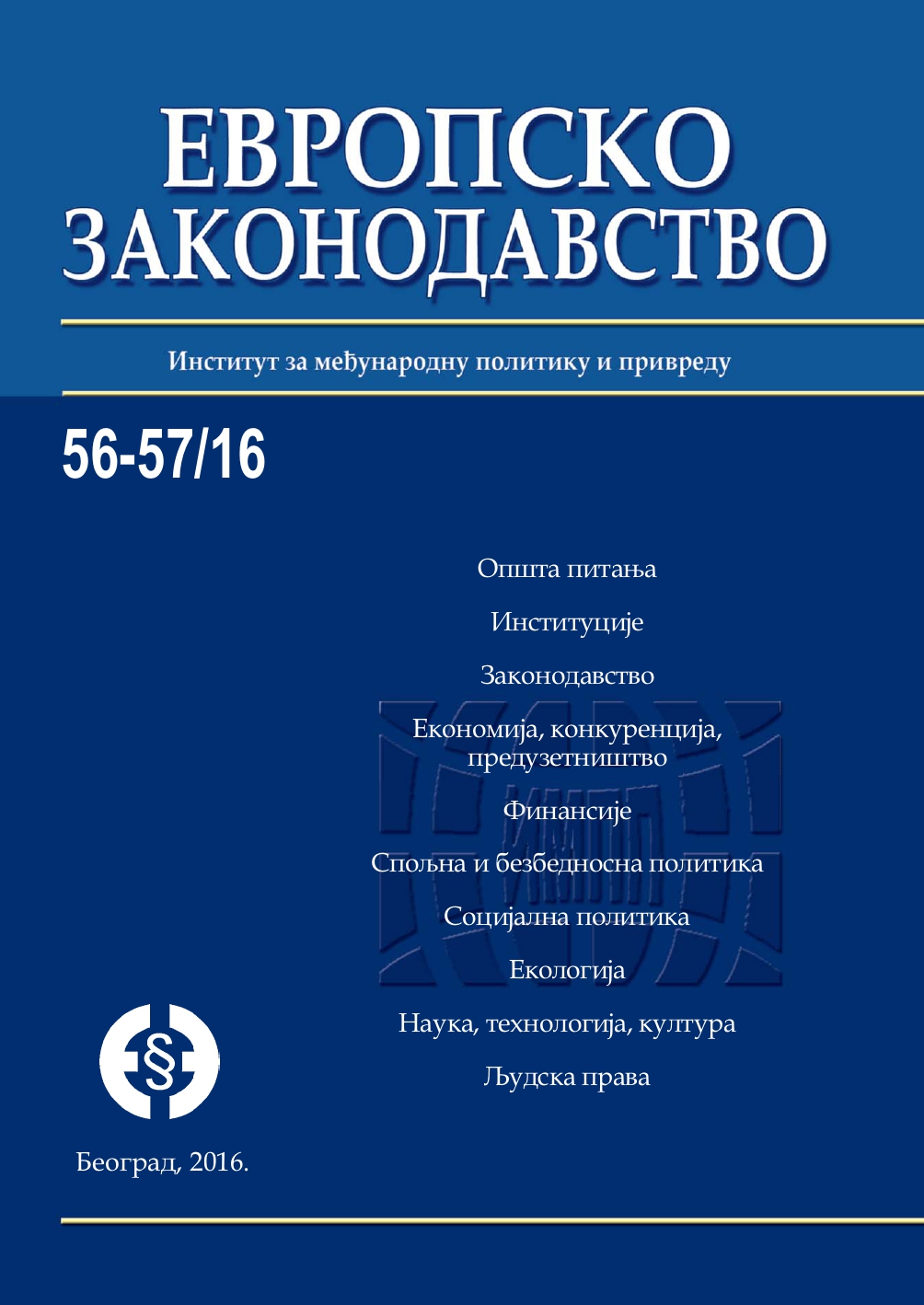Обележја јавнобележничког поступка
Features of the notarial procedure
Author(s): Milena Trgovčević ProkićSubject(s): Law, Constitution, Jurisprudence
Published by: Институт за међународну политику и привреду
Keywords: notary public;a party;invited witnesses;interpreter;translator
Summary/Abstract: The public notary procedure is an indisputable part of extra-judicial procedures designed to ensure the protection of the legal interests of citizens and prevent any arising disputes. The notary’s procedure is the "entrance" to the civil court proceedings because it reduces the occurrence of disputes. It has a protective and supportive role of the relations that legal and natural persons enter, which are aimed at the establishment, modification or termination of civil rights and obligations. Its role is protectionist since it contributes to the protection of civil relationships involving private and commercial relations. The notary’s procedure ensures that the relations of the parties are settled so that in the future there would be no dispute, while the notary’s document provides the protection of the rights of a particular legal interest of the parties. Subjects of public notary proceedings are the public notary, parties, witnesses and auxiliary persons. The term party should be regarded as a person participating in the proceedings on the basis of their rights or their legally protected interest, in the broad sense that would be all the persons who directly or indirectly take certain procedural steps in the notary public process, and for the protection of the rights of the subjects. The notary public procedure recognizes three kinds of witnesses: witnesses who testify about legally relevant facts and circumstances, witnesses of identity and witnesses of acts. The law stipulates that the witnesses of identity and witnesses represent a condition for the legal effect of a single notary’s document. If these witnesses do not attend the drafting of notary documents, that is if they have not attended the procedure of the drafting of the notary documents, or they are persons who could not be witnesses, the notary document shall be null and void. The notary laws provide the opportunity for persons who do not know the language of the country, as well as persons who are deaf, dumb, or deaf-mute, or who have another disability as well as to illiterate persons to participate in the proceedings, and for these reasons the laws provide for the presence of persons who can help them draft a document. These are a translator and interpreter, or a trusted person who is able to explain the entire contents of documents to the affected party, in this case of a person who has a lack of a sense.
Journal: Европско законодавство
- Issue Year: 2016
- Issue No: 56-57
- Page Range: 112-124
- Page Count: 13
- Language: Serbian

